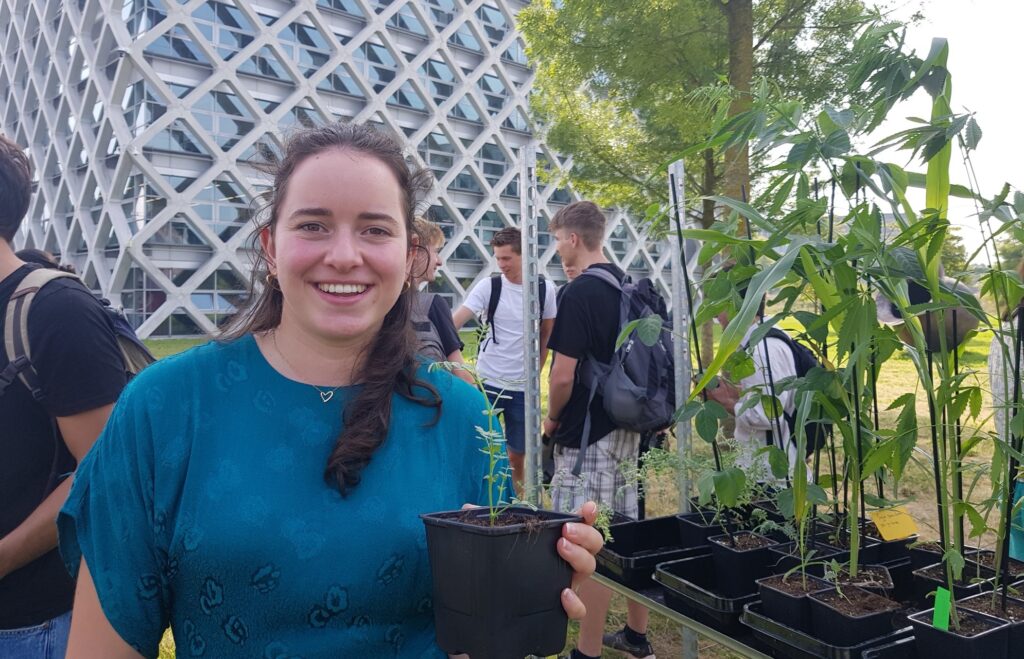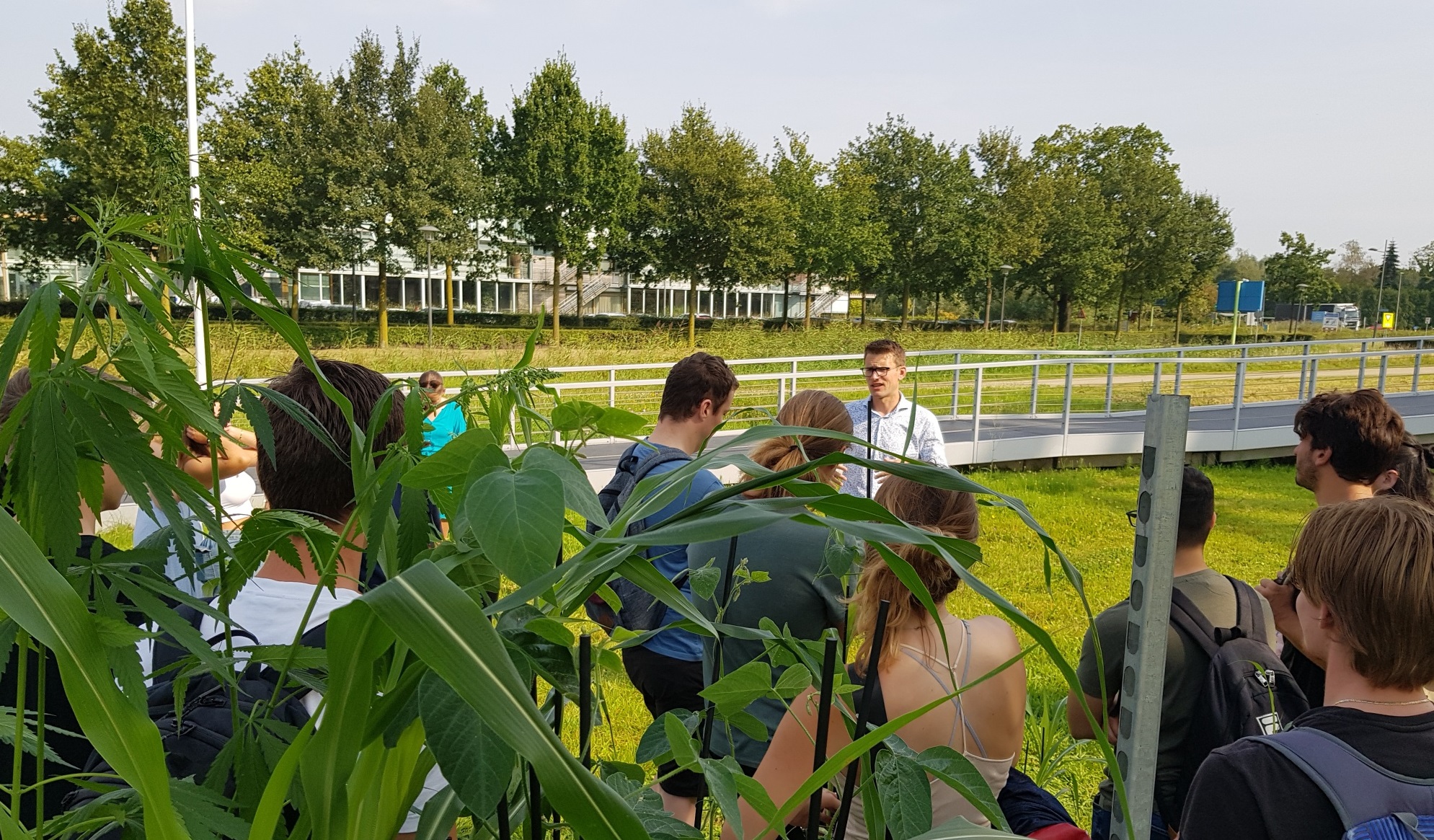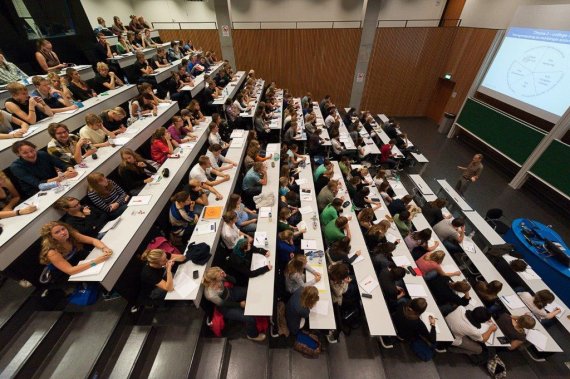The 2024-2025 academic year started on Monday for Lieke van der Horst, a second-year International Land and Water Management Bachelor’s student, when she had to select a plant. A gift from WUR, but it did come with an assignment: the plant had to be kept alive for six weeks. That is how long the Irrigation & Water Management module lasts that she is doing.
Van der Horst chose a chickpea plant. ‘Last year I had a soya plant, but I didn’t finish the module that time.’ She could have chosen sorghum or cannabis instead. ‘Sorghum is quite a big plant and would take up too much space in my bedroom, and I don’t find cannabis very interesting.’ To clear up any misunderstanding: the cannabis is actually hemp and doesn’t contain any active ingredients.
Tamacroppi
Van der Horst is not the only student who gets to choose a plant. Several dozen students crowd around lecturer Chris Seijger at the foot of The Sower statue, waiting to pick up their plants. Seijger has been doing this for some years now. He calls the project ‘tamacroppi’, after the popular tamagotchi craze that spread from Japan, where you had to keep an imaginary pet alive.

There is nothing virtual about these plants, though: they are very much alive. ‘The course is an introduction to irrigation and water management,’ explains Seijger. ‘The students learn how to calculate how much water a plant needs and how irrigation works. They also go on a trip abroad to see how farmers do all this in practice. I came up with Tamacroppi as a nice way of getting the rather abstract theory across.’
According to Seijger, the assignment of keeping the plants alive is not easy. ‘It’s already September. The warm months when the plant grows have come to an end. I know from previous years that students discuss this with their flatmates. That creates an interesting dynamic. It’s a way of reflecting on the course material. What happens with evaporation? How often should you water a plant?’
Caring for the plant is optional. ‘A bonus,’ says Seijger. ‘But I do refer to this in my lectures. For example, I ask whether you can work out how much water your plant has lost in evaporation by just using kitchen scales. The answer is: yes, you can.’ But he is keeping the detailed answer secret for now for educational reasons.
For fun
Van der Horst thinks she will be able to keep her chickpea plant alive. ‘I’m quite good at this. I already have a really beautiful orchid in my room, which I’ve had since I started university. I also have aloe vera and other plants. And now this one. I’m doing it for fun, and as a practical aid for the lessons. I will be taking the occasional photo to keep track of how much it grows.’

 Photo Resource
Photo Resource 

